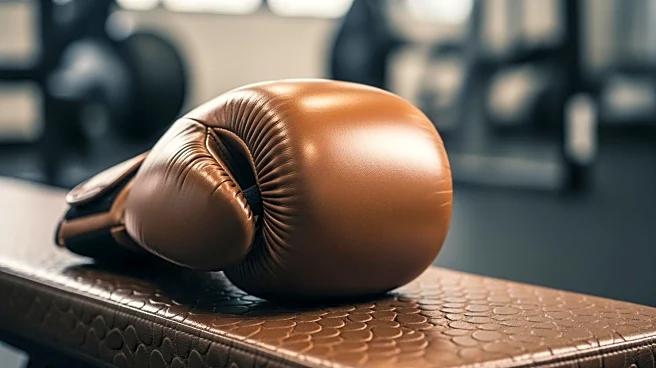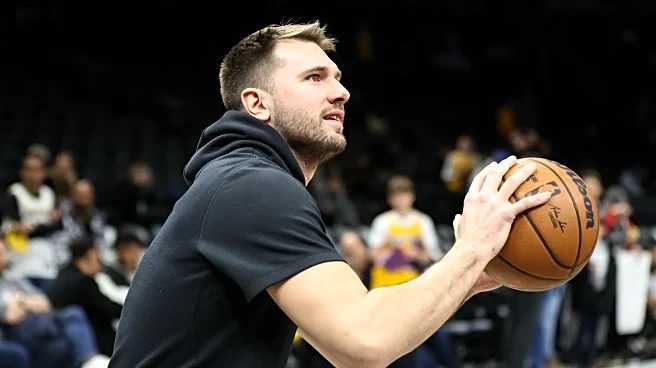What's Happening?
Gregory Rodrigues is focusing on discipline and patience as he prepares for his upcoming fight against Roman Kopylov at UFC 322. Rodrigues, known for his aggressive fighting style, has learned the importance of patience both in the Octagon and in life.
He aims to apply these lessons in his fight, which could potentially lead to a ranking in the Top 15. Rodrigues' approach reflects his growth as a fighter, emphasizing the value of consistency and strategic thinking in achieving success.
Why It's Important?
Rodrigues' emphasis on discipline highlights the mental and emotional aspects of combat sports, where psychological resilience can be as crucial as physical prowess. His approach serves as a reminder of the importance of personal development and adaptability in sports. By prioritizing discipline, Rodrigues sets an example for other athletes, potentially influencing training methodologies and competitive strategies. His focus on patience and consistency could lead to improved performance and career longevity.
What's Next?
If Rodrigues succeeds in his fight against Kopylov, he may secure a position in the middleweight rankings, opening opportunities for higher-profile matches. His performance could attract attention from sponsors and fans, enhancing his visibility and marketability. UFC management might consider Rodrigues for future events, leveraging his disciplined approach to promote the sport's strategic and psychological dimensions. The outcome of this fight will likely impact Rodrigues' career trajectory and influence his future training and competition strategies.
Beyond the Headlines
Rodrigues' focus on discipline and patience reflects broader themes in sports, where mental fortitude and strategic thinking are increasingly recognized as key components of success. His approach raises questions about the role of psychological training in athlete development and the potential for sports to foster personal growth and resilience. This event could spark discussions about the integration of mental and emotional training in sports, potentially leading to innovative approaches to athlete preparation and performance.

















